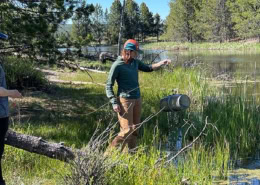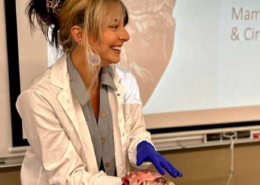BIOLOGY
Explore the science of life in one of the most diverse and interesting biologic regions in North America.
Explore the science of life in one of the most diverse and interesting biologic regions in North America.
Our Biology major is a dynamic, hands-on curriculum that prepares students for successful careers in biotechnology, bioinformatics, healthcare, genetics/genomics, natural resources, conservation biology, and more.
Our program emphasizes hands-on learning through faculty-mentored research, where students address real-world challenges such as climate change, biodiversity loss, and human health. Graduates develop essential skills in laboratory techniques, data analysis, geographic information systems (GIS), and scientific communication, ensuring they are well-prepared to pursue rewarding careers in biology or advance to graduate and professional schools.
*The Certificate in Wildlife Ecology and Conservation is housed within the Environmental Science, Policy, & Sustainability program website.
Learn more about SOU Biology Degrees:
See what’s happening in the Biology Department




Learn More about the Biology Program at Southern Oregon University

I never had a problem while under the roof of the Sciences Building at SOU – no matter how busy they were, my science instructors always had enough time to listen, think, and then answer the question.
SOU Biology Program
1250 Siskiyou Blvd.
Ashland, OR 97520
541.552.6344
– Questions About Biology? –
